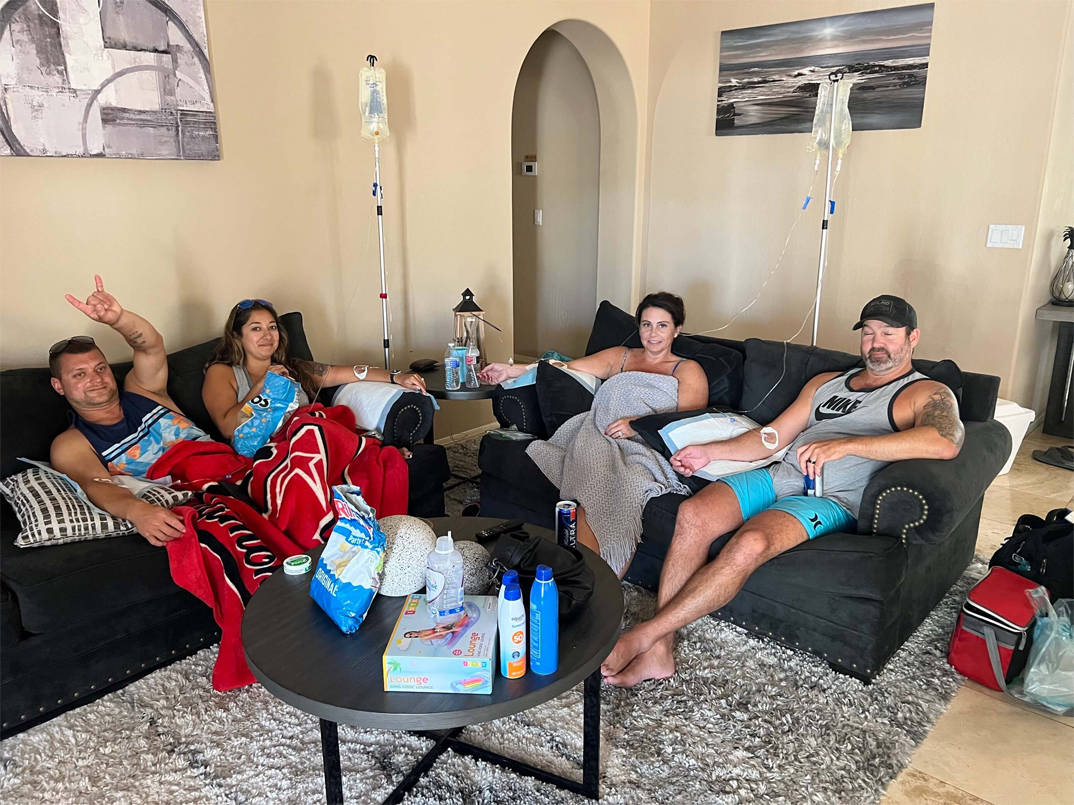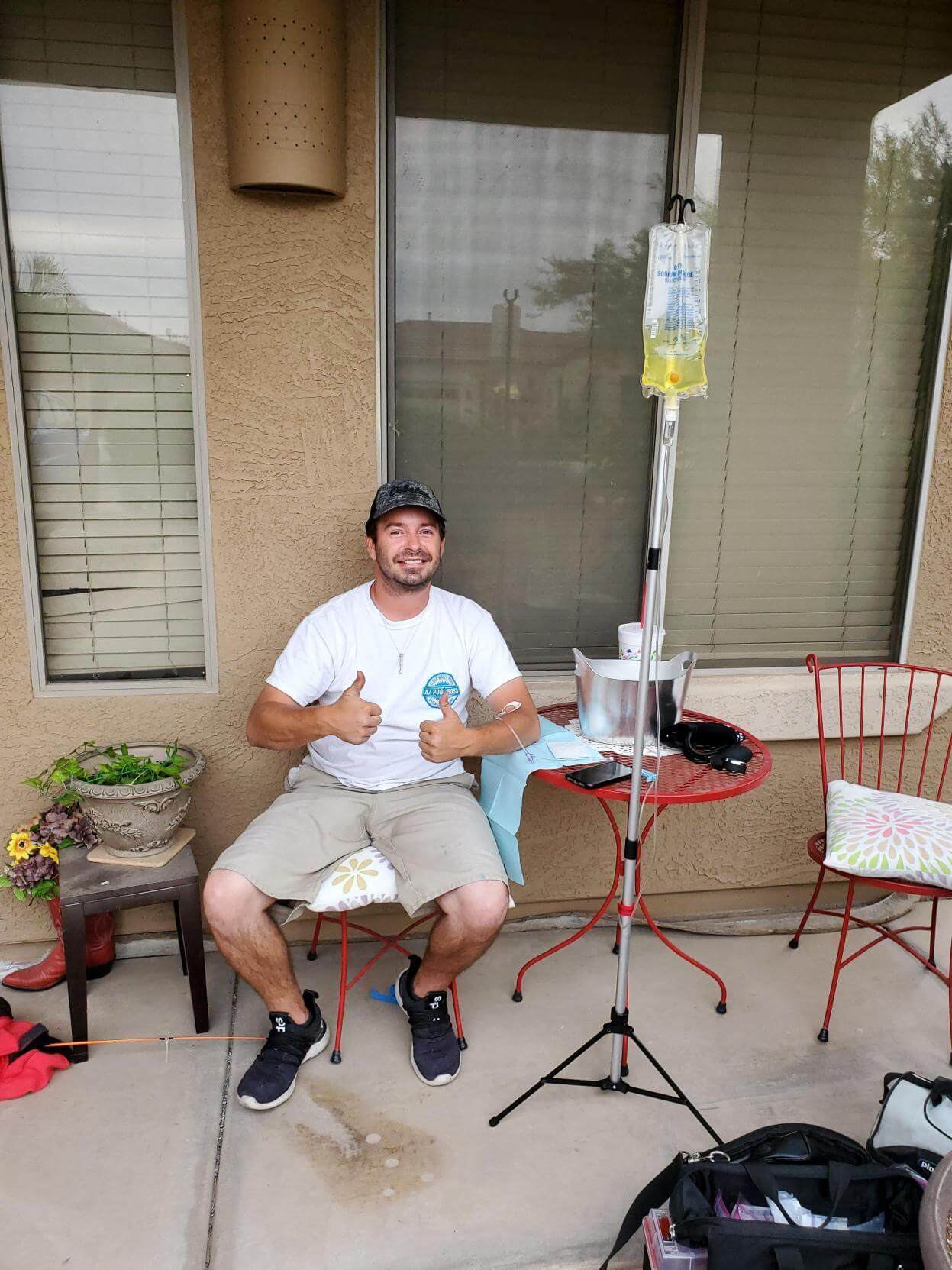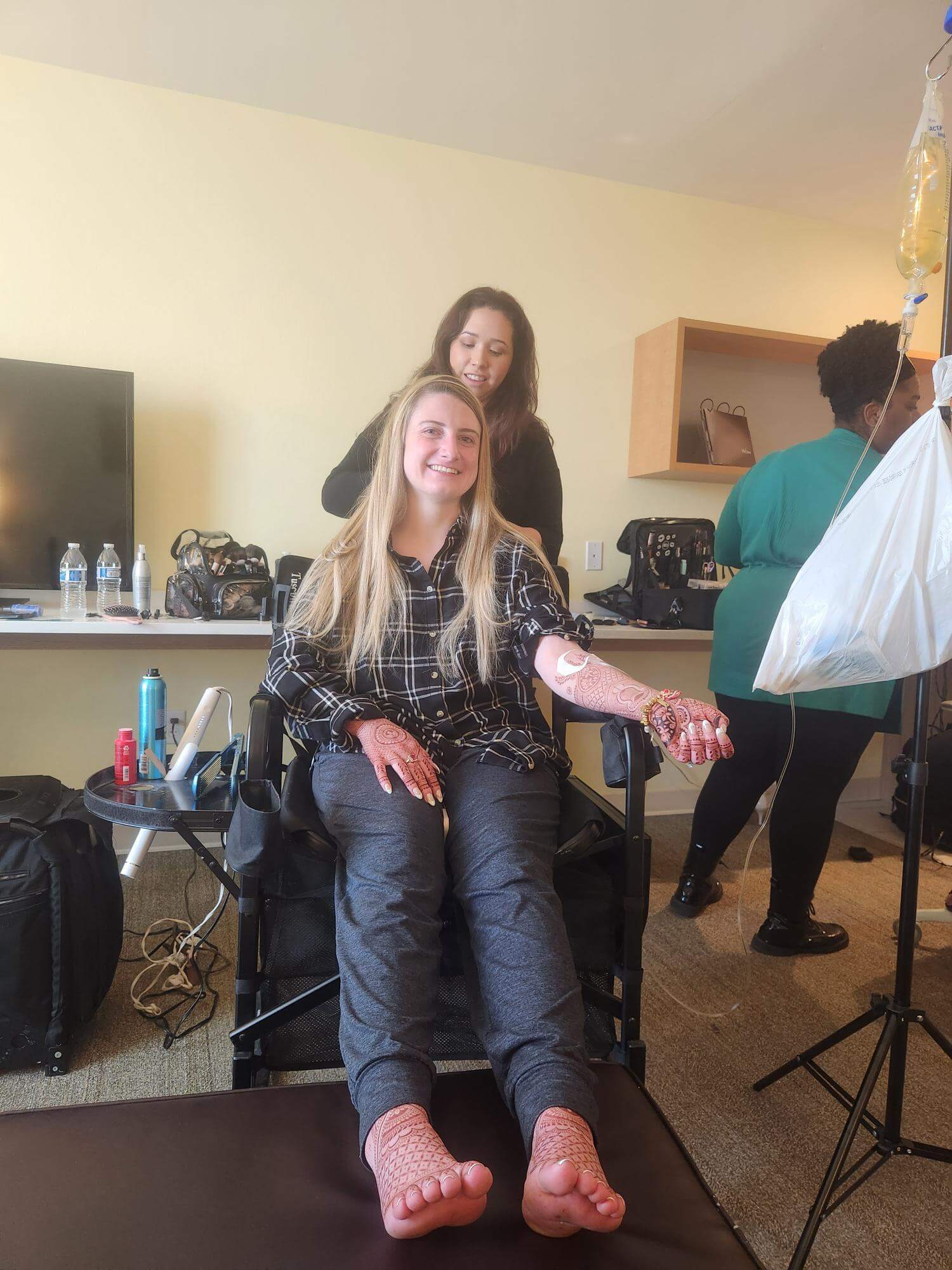
Understanding Severe Dehydration:
Severe dehydration isn’t merely feeling a bit parched—it’s a distress call from your body. It occurs when your body loses an excessive amount of fluid, posing serious health risks. Anyone, regardless of age, can experience severe dehydration, emphasizing the importance of recognizing its signs promptly.
Symptoms of Severe Dehydration: Understanding the Warning Signs
Severe dehydration can manifest through a range of physical and cognitive symptoms, serving as crucial warning signs that your body needs immediate attention. Here’s what to look out for:
- Persistent Thirst: Despite drinking water, if you find yourself constantly thirsty, it could be a significant indicator of severe dehydration. This persistent thirst is your body’s way of signaling that it needs more fluids to function properly.
- Reduced Sweating: Dehydration can cause a decrease in sweating, which is your body’s natural mechanism for cooling down. When sweating decreases, your body may struggle to regulate its temperature, leading to feelings of overheating and dizziness, especially in hot environments or during physical activity.
- Sunken Eyes: One visible sign of severe dehydration is sunken eyes. Dehydration causes a loss of fluid volume in the body, including the tissues around the eyes. As a result, the eyes may appear sunken or hollow, indicating a significant lack of hydration.
- Rapid Heartbeat: When the body is severely dehydrated, the cardiovascular system may compensate by increasing the heart rate in an effort to maintain blood pressure and circulation. A rapid heartbeat, also known as tachycardia, can be a sign of distress and requires immediate attention.
Recognizing the Signs of Dehydration in Infants and Young Children:
Infants and young children may exhibit different signs of severe dehydration compared to adults. Here’s what to watch for:
- Fewer Wet Diapers: For infants, a decrease in the number of wet diapers is a concerning sign of dehydration. Normally, infants should have several wet diapers throughout the day. A noticeable decrease in wet diapers may indicate inadequate fluid intake and dehydration.
- Sunken Soft Spot (Fontanelle) on the Head: In babies, the soft spot on the top of the head, known as the fontanelle, can become sunken when they are severely dehydrated. A sunken fontanelle is a serious sign that the baby needs immediate medical attention.
- Crying Without Tears: When a baby is crying due to discomfort or distress, tears usually accompany their cries. However, severe dehydration can lead to a lack of tears, making crying without tears a concerning symptom that should not be ignored.
Recognizing these signs of severe dehydration in infants and young children is crucial for ensuring their health and well-being. If you observe any of these symptoms, seek medical assistance promptly to address the dehydration and prevent complications.
Complications of Severe Dehydration:
Neglecting severe dehydration can lead to a host of serious complications, both in the short and long term. Here’s a closer look at the potential consequences:
Short-Term Complications:
- Heat-Related Illnesses: Severe dehydration can significantly impair the body’s ability to regulate temperature, making it more susceptible to heat-related illnesses such as heat exhaustion and heatstroke. These conditions can result in symptoms like dizziness, nausea, rapid heartbeat, and even loss of consciousness if left untreated.
- Urinary Problems: Dehydration can lead to concentrated urine and urinary tract issues, including urinary tract infections (UTIs) and kidney stones. Without adequate hydration, the urinary system may struggle to flush out toxins and waste products effectively, increasing the risk of these complications.
Long-Term Complications:
- Kidney Damage: Prolonged dehydration can put strain on the kidneys, which play a crucial role in filtering waste products from the blood and maintaining fluid balance in the body. Chronic dehydration can impair kidney function over time, leading to kidney damage or even kidney failure if left untreated.
- Shock: In severe cases, untreated dehydration can progress to a life-threatening condition known as shock. Shock occurs when vital organs do not receive enough oxygen and nutrients due to inadequate blood flow. This can result in multi-organ failure and ultimately, death if emergency medical treatment is not administered promptly.
Prevention of Severe Dehydration:
Preventing severe dehydration is the best approach. Drink water regularly, especially in hot weather or during physical activity. Recognize early signs of dehydration like thirst and fatigue, and address them promptly.
Individuals at higher risk of dehydration, such as older adults or those with chronic illnesses, should be particularly vigilant about staying hydrated.
Who is At Risk For Dehydration?
Dehydration can affect anyone, but certain groups face a higher risk:
- Older Adults: Aging can reduce the sensation of thirst and kidney function, leading to inadequate water intake.
- Babies and Young Children: Their smaller bodies make them more vulnerable to dehydration, especially during illnesses causing vomiting or diarrhea.
- Athletes: Intense workouts, high altitudes, and hot weather increase the risk of dehydration due to excessive sweating.
- People with Chronic Illnesses: Conditions like diabetes or kidney disease, along with certain medications, can disrupt fluid balance.
- People with Digestive Issues: Frequent diarrhea or vomiting from conditions like gastroenteritis can deplete fluids and electrolytes rapidly.
- People in Hot Climates: Increased sweating in hot weather can lead to dehydration if water intake doesn’t match fluid loss.
- People with Limited Water Access: During emergencies or in remote areas, limited access to clean water raises dehydration risk.
Remember, staying hydrated is crucial for everyone’s health. If you or someone you know falls into these risk categories, prioritize adequate water intake and be alert to signs of dehydration to prevent it from worsening.
Knowing When to Seek Help for Dehydration
Recognizing when to seek medical help for dehydration is essential. If you or someone you know is experiencing extreme thirst, confusion, lack of sweating, rapid heartbeat and breathing, or sunken eyes, don’t delay—reach out to your doctor immediately. They can provide intravenous fluids and closely monitor your condition to ensure a speedy recovery.
Call Us for Mobile IV Dehydration Assistance
Severe dehydration demands prompt attention, but it’s preventable with quick action. By recognizing the signs and acting fast, you can ensure your safety and that of your loved ones. Don’t wait until it’s too late—prioritize hydration, maintain your health, and reach out for a mobile IV when needed. Your body will thank you for it.
If you’re dealing with mild to severe dehydration or have any concerns, don’t hesitate to contact Pure IV at (833) 688-1299. Our team is dedicated to helping you stay hydrated and healthy.





